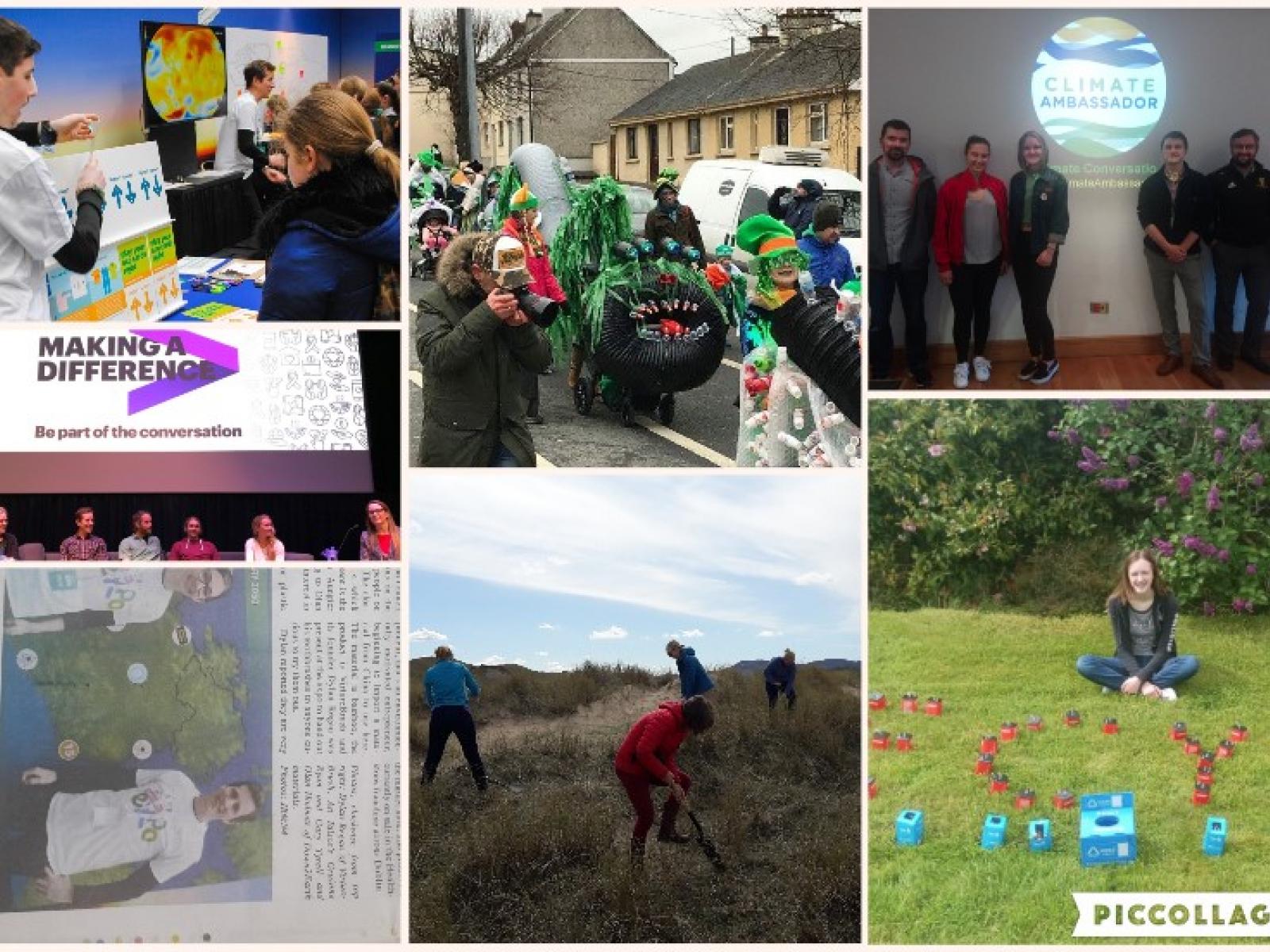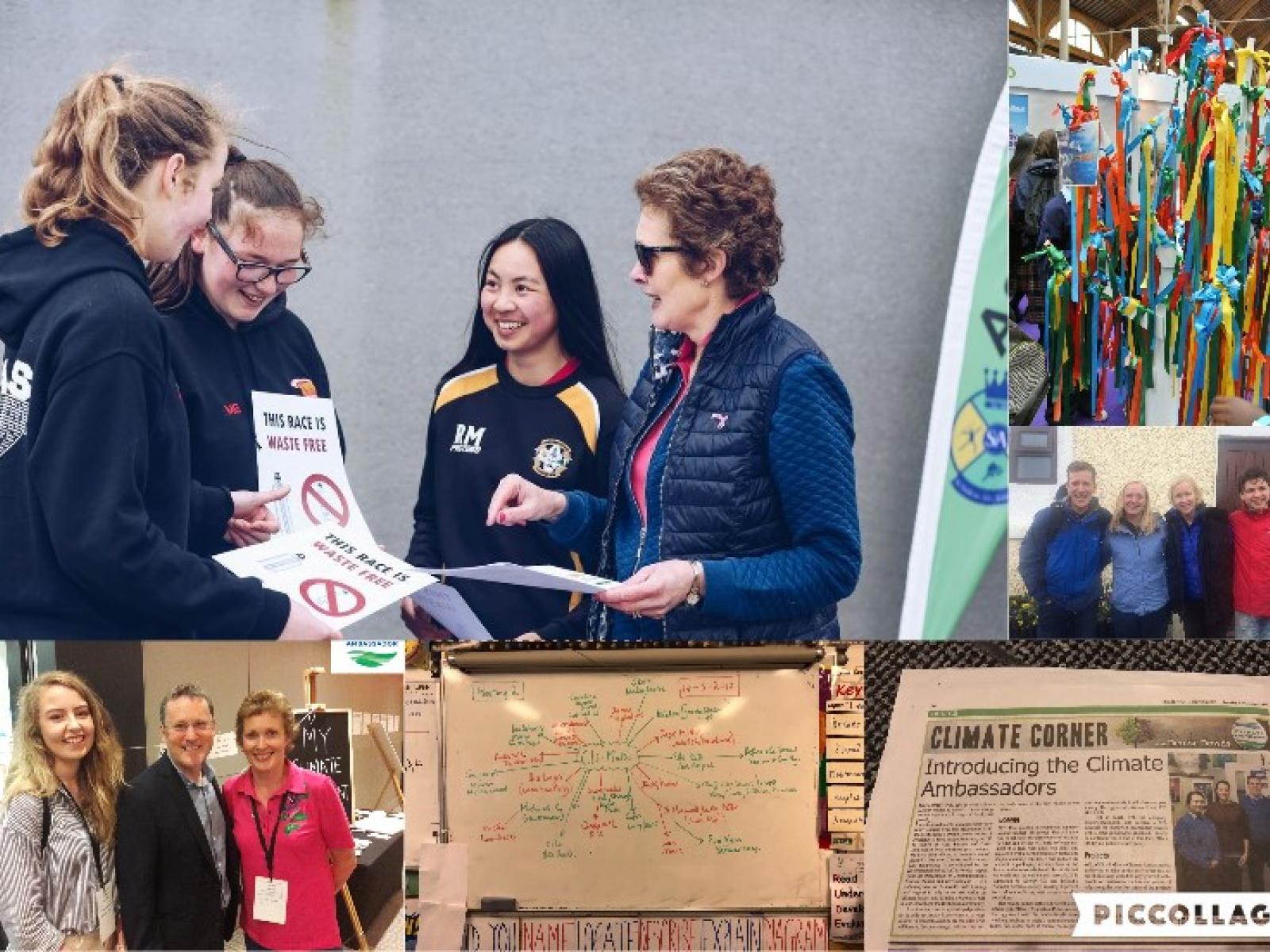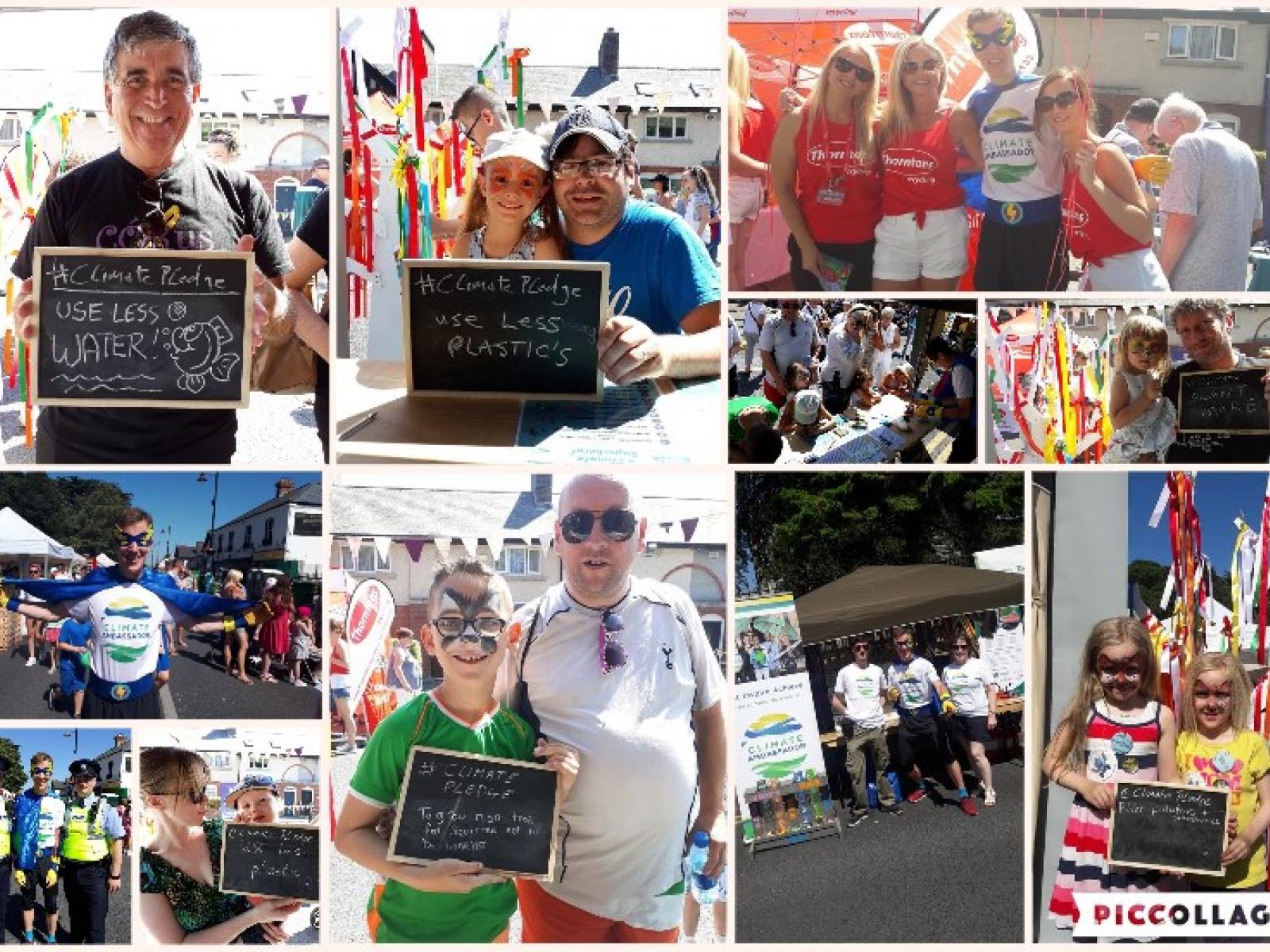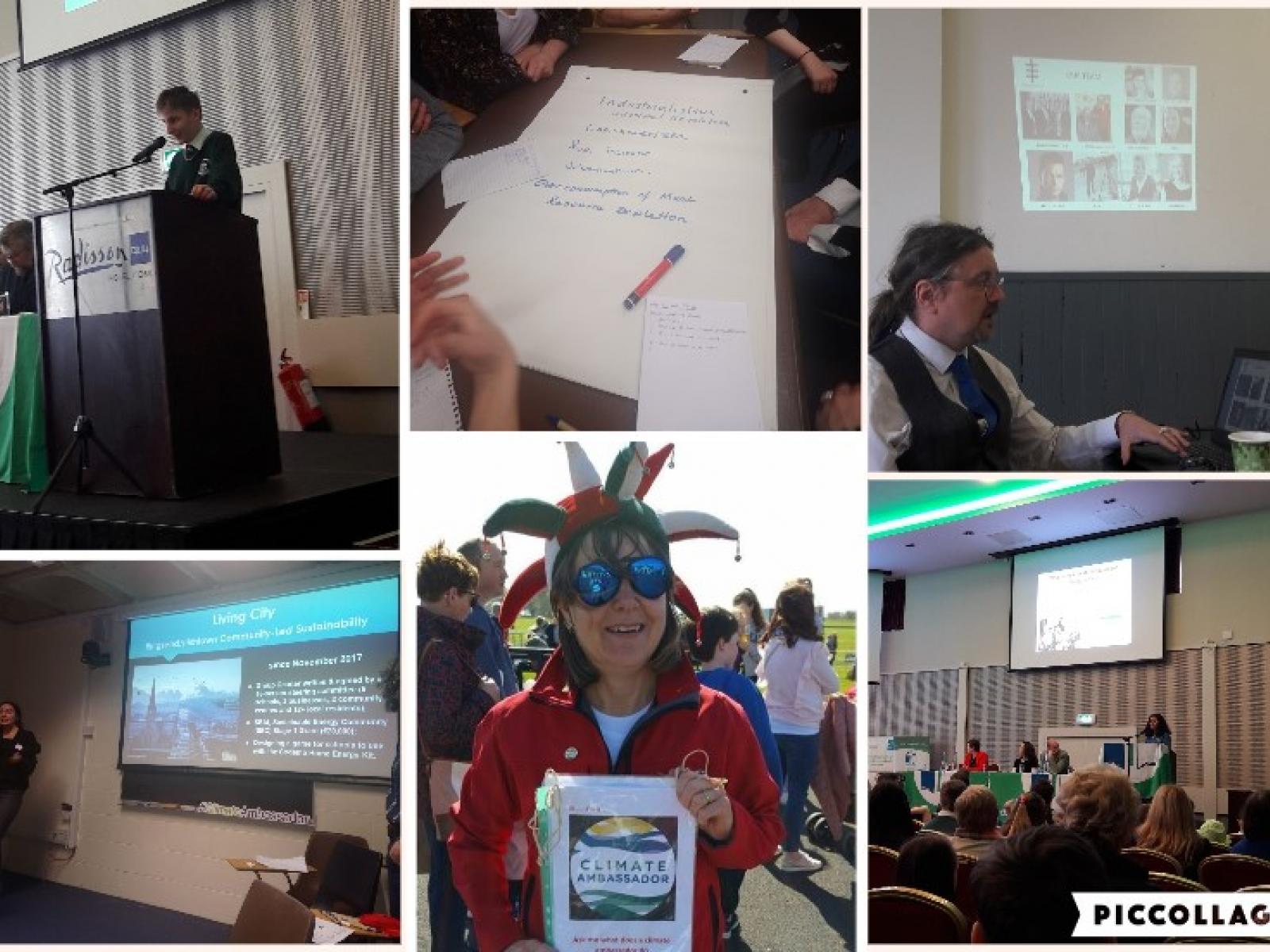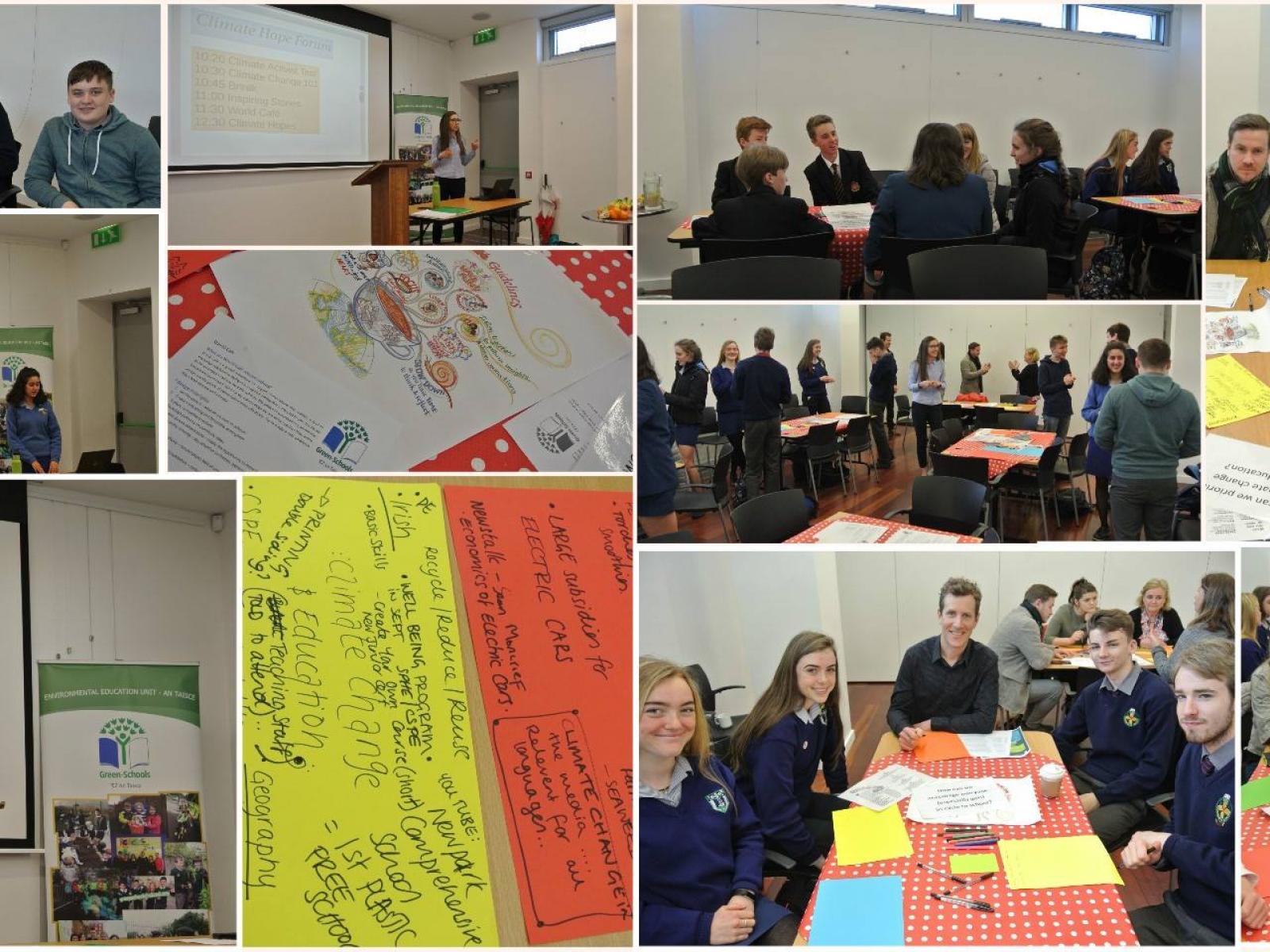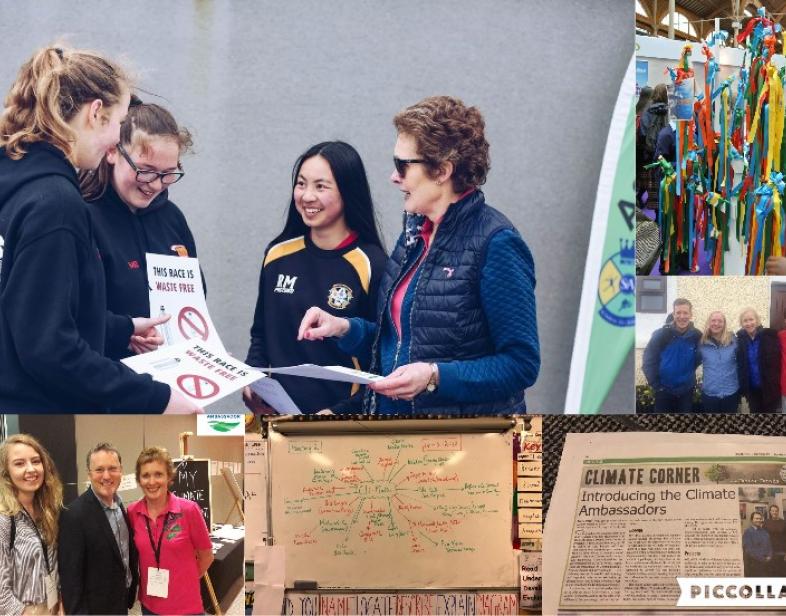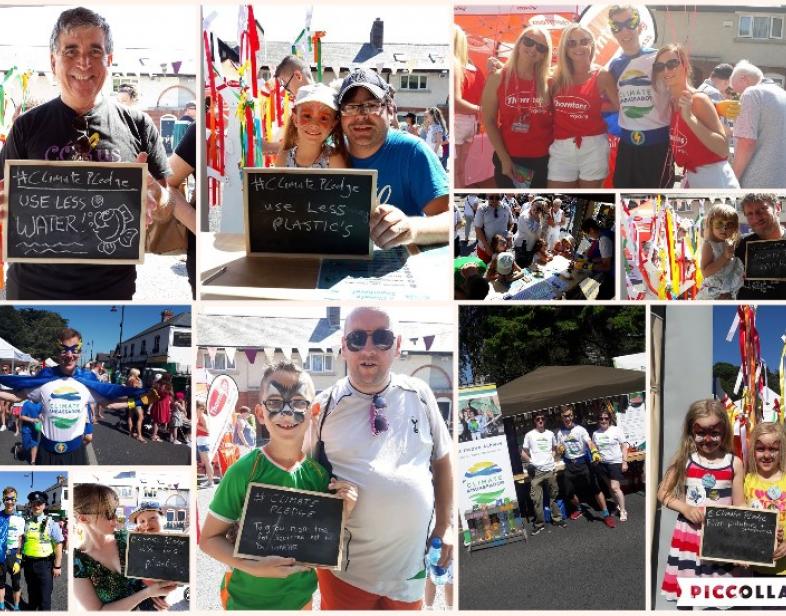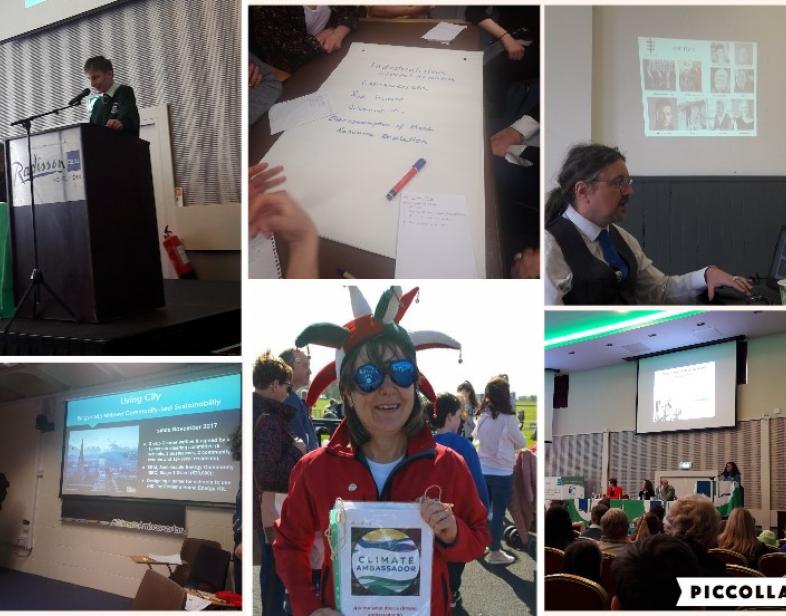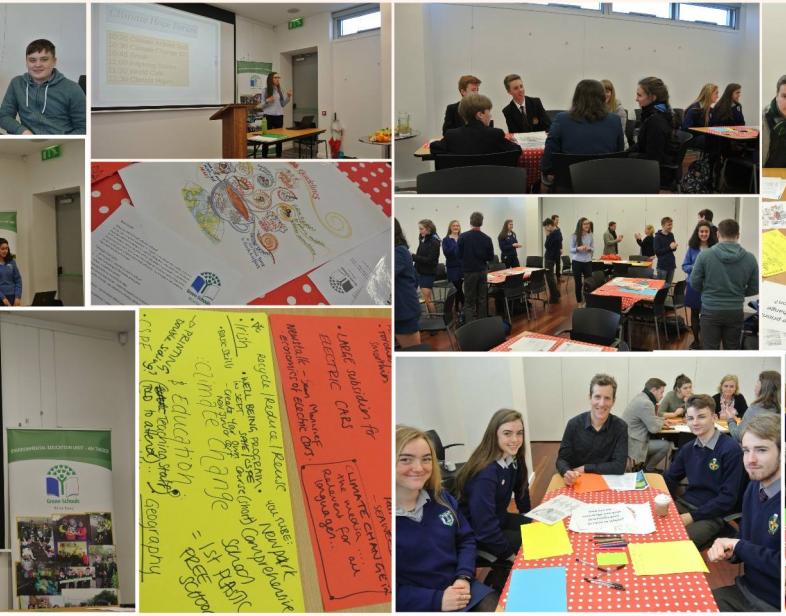An Overview Of Our Solution
The Climate Ambassador Programme (www.climateambassador.ie), is a new eNGO in the Republic of Ireland, started in January 2019 with just over 100 volunteers working on climate communications and climate actions at local community scale. We strive to support & inspire our volunteers with regular meet-ups, networking, training, workshops and a climate toolkit, all on a small budget.
Part of our strategy is to have a bottom up approach, to utilise the experiences and knowledge of our group of volunteers and to also lead by example. We are grounded in reality but we encourage proactive positive actions.
One such action is our short video which depicts our hero running 13km against Dublin's light-rail (LUAS). Before the race, we asked through social media for people to make a climate pledge, which would help empower Captain Climate in his race against the LUAS.
- Population Impacted: 500,000
- Continent: Europe
Context Analysis
Ireland is ranked 2nd worst in EU for tackling climate change & also set to miss 2020 & 2030 emissions targets[1]. We have less than 4000 EV's on the road at the start of 2018[2] & lowest forest cover of European countries [3]. We have also experienced increased litter levels in Dublin city [4], while 5% of Irish population are vegetarians [5].
Within this reality, An Taisce is Ireland's leading environmental education programme, with over 20 years of experience with various programmes (see 'Key Partners' section for more details). From this wealth of experience, connections & reputation the Climate Ambassador (CA) programme has emerged. With our diverse CA group, we have a great understanding of the social & community factors our volunteers face, who feed back to us, to learn & continually improve our messaging & inclusion strategies. With the emergence of the SDG's we are working to also tie them into our efforts, to improve economic & sustainable development awareness.
Describe the technical solution you wanted the target audience to adopt
Our volunteers aim to inspire the adoption of sustainable behaviors such as driving less, eating plant based diets, enabling their schools become single-use plastic free or their canteens having meat free Mondays; events such as plastic free fun-runs; Marram grass planting in coastal regions; WEEE recycling; community energy projects; community gardens; tree plantings etc. as technical solutions to reducing GHG emissions.
We also assist them host Climate Communications:- face to face chats, preferably with cake :); give presentations; host environmental movies with Q&A's; ‘Culture Night’ events; climate change themed hikes; Climate Hope forums for high school students to brainstorm solutions; newspaper & radio interviews, talking to politicians, engagement through social media & through our climate games & activities at festivals & EXPO's. All of this with the distinct purpose of raising the profile of climate change & raising awareness about what people and communities can do.
Type of intervention
Describe your behavioral intervention
Our volunteers consist of high school & university students & adult community members. Diversity is one of our biggest strengths. We ask our volunteers to carry out 2 climate communications & 2 climate actions during the year. Due to the diversity of volunteer's, it has led to wide-ranging engagement throughout the country. On Twitter (@climate_ambass), we've had 409,990 engagements. People are changing habits because it’s their peers who are our Climate Ambassadors – acting as social incentives for change.
In relation to the "Captain Climate" video, we estimate we've had over 15k engagements, with people making #ClimatePledges - many of whom we asses to be making their 1st public declaration or communication of any sort in relation to climate change. The project appeals to people’s emotions (it’s visually appealing, it’s funny, it’s approachable), and harnesses the power of social incentives (it creates a culture around climate action, much like Batman or Spiderman, it attracts a following, and it motivates people to join their friends / social circles on climate action).
We’ve found the same thing with our engagements at local festivals (we bring the Captain :)) - often people we're talking to are for the 1st time making connections between their behaviours such as food & transport choices & climate change. It's been inspiring to see the empowerment people feel once they start to talk & take actions & how well they can convey the issues within their spheres of influence!
As needed, please explain the type of intervention in more detail
How can we reach outside of the environmental echo chamber? We chose to lead by example & made a short non-scientific video as a novel way of introducing climate change.
The premise was to race Dublin's light rail from the suburb of Tallaght to the city centre (13km), by 'Captain Climate'.
The video's aim was to show our Climate Ambassador volunteers that there are many ways to communicate climate change. It aimed to inspire & energise our volunteers while also engaging a wider non-environmental audience. The social media audience was asked to make a #ClimatePledge & further incentivised by being entered into a free month pass of the light rail (prize sponsored by light rail co.). Essentially it's a feel good clarion call to all citizens.
Describe your implementation
Due to the ongoing issue of a lack of climate change coverage in the Irish media - we set about starting a new conversation. One which engages (listens) & empowers at the grassroots level. We are continually feeding back with our volunteers to find out what is working & where they need more assistance. This iterative approach enables a grassroots implementation of the Climate Ambassador (CA) programme, where for example at our regular meet ups, we include time for presentations from our volunteers on how they have been progressing, with lessons learned & ideas shared - giving these events a strong element of motivation for our volunteers going forward. The feedback we receive helps us to cater to our volunteers needs, for example by developing a climate change presentation in Irish & another targeting a younger audience. We have developed a workshop on how to talk to politicians & provide social media tips, all developed to enable our volunteers become more effective through obstacles that they've identified. These tools have been added to the various other tools at their disposal such as Communications & Climate Change presentations; facilitating guidelines; media contacts list & event planning checklists. We also deliver training sessions on some of the above.
With this training & the constant support provided, we have seen our volunteers blossom into confident climate communicators, taking actions & becoming true CA's. Each of them have had their own obstacles & successes, meaning we have provided general training & support but individual supports where needed too. With our amazing volunteers we have gone above and beyond our expectations already for the year and we are looking forward to the end of the year where we will have an award ceremony, recognising & celebrating their efforts, whilst giving individual awards to some of our volunteers who have gone above & beyond in achieving their successes. We're super-excited about recruiting again for next year too.
External connections
Ireland has a pretty bad record in relation to climate action. However, there have been recent glimmers of hope, including our Climate Ambassador programme & also The Citizens' Assembly report calling on Ireland to be 'a leader in tackling climate change' [6][7].
We are part funded by the Dept. of Communications, Climate Action & Environment but we are an independent eNGO, so we are left to run this programme as how we see fit.
We provide oversight of Irish policy on climate change & keep our volunteers & the wider public up to speed with any developments through internal communications (regular newsletters) & on social media. Our volunteers are actively involved in Regional Gatherings, aimed at harvesting ground level suggestions of climate action fed back to the Govt.
Where possible we work with our internal programmes such as Green-Schools (https://greenschoolsireland.org/), Green Campus (http://www.greencampusireland.org/), Clean Coasts (http://cleancoasts.org/) & National Spring Clean (http://www.nationalspringclean.org/) to maximise outreach & interconnect with issues such as environmental education (delivered focusing on student's projects); environmental awareness; litter & waste reduction; marine protection. Many of our volunteers are members of these programmes, as well as other groups, enabling a deepening of a national environmental network. We have identified various other parties, e.g. Local Authorities & the Norwegian Embassy to work on various env projects
Who adopted the desired behaviors and to what degree?
Our 108 volunteers have through their actions as Climate Ambassadors tweaked their own personal behaviours. More importantly, they have been able to scale up behaviours through reaching out to the local spheres of influence by communicating with them the causes, effects & solutions to climate change. They have also led by example by organising actions at community scale to help change behaviours, while reducing the likelihood of occurrence and also impacts of such behaviours going forward.
The people who have adpoted are the staff & students of schools & universities where our volunteers study and also the fellow co-workers & community members of our adult community volunteers. The friends & family of our volunteers have also been influenced as indeed has some of our social media audience.
For the "Captain Climate" video, those who made ClimatePledges, publicly declared intentions of behavioural change, whilst helping to build social incentives and adding emotional appeals.
How did you impact natural resource use and greenhouse gas emissions?
We have as of yet not attempted any off-set measuring. Half of our strategy is in the area of communications, so to try and gauge any offsets for those communications would be difficult. We will be collecting details of all of the communications and actions from our volunteers at the end of the year, so we could provide an approximated figure then.
It's worth adding here that all of our training events are as carbon neutral as possible, with any catering using vegetarian & vegan options only, encouraging sustainable travel, choosing the most sustainable venues etc.
We will attempt to estimate what the savings are and will use best practice calculations for the variety of climate actions we will receive from our volunteers near the end of the year. We will compare the UN Carbon Calculator against the Carbon Footprint Calculator to determine the most accurate one to use.
What were some of the resulting co-benefits?
The social benefits of the volunteers getting to know one another, while building friendships has been great to see. The energy & inspiration they give each other has been, well, inspiring!
Their confidence levels have grown as they have received their training & carried out more of their own communications & actions. Their sense of worth & confidence of now being able to do something about climate change has been empowering. Many unforseen creative endeavours have occurred e.g. St. Patrick's Day floats, Captain Climate etc.
Through the sharing of what each CA has carried out with each other they have acted as emotional appeals whereby people have learned that by taking matters into their own hands they have felt better about themselves, their place within their communities & motivated to carry out further actions. This sharing also acts as a social incentive, where volunteers are inspired to mimic the actions of their co-volunteers. Various actions have co-benefitted in many ways.
Sustainability
The Climate Ambassador Programme is funded by the Irish Govt.'s Dept of Communications, Climate Action & the Environment. The Climate Ambassadors (CA's) are asked to continue in their efforts after their year of support has completed. We will ask them to become mentors for the next group of CA's next year.
However, the video was made on my own time, with the help of 2 friends whom I paid with a celebratory vegetarian lunch after the race from my own pocket. Although I'm a vegan, neither of my friends are & they loved their lunch, which was a nice by-product result. We hope to see many (carbon :)) copies of the video going forward, all that is needed is a little imagination & the loan of a camera & tripod & 'Apple Movie' or similar app.
Return on investment
The cost of the video was €29 to make the Captain Climate costume, all other expenses & hours were voluntary. The amount of social media engagement & climate pledges went above & beyond this small investment. Many of the climate pledgers were for the first time engaging in climate change.
The same character "Captain Climate" has since been deployed to local festivals, engaging many children & parents in climate change. At the festivals we have made some climate change games to guess the carbon footprint of everyday activities; coin toss game intertwined into the SDG's; "Climate Tree" write wish onto a ribbon & tie to our mobile tree.
Our aim to talk to as many people about climate change as possible has been exceeded by a huge margin.
How could we successfully replicate this solution elsewhere?
The beauty of the video (link attached) is that it was very cheap to make & easily replicable. It was made with the explicit hope of others making similar short videos. It was made using Apple Movie, my SLR camera & tripod. As far as I can tell, the race & type of video itself are both quite novel, which is exactly what we wanted - a new way of communicating such issues.
The Climate Ambassador programme itself, is also highly replicable (& novel), where we encourage our volunteers to recruit others to carry out the same type of climate communications & actions that they are carrying out themselves. We have provided our volunteers with a USB full of presentations; lists when planning events; facilitator guidelines; press release template etc. We are hoping to expand the programme further next year, to recruit more volunteers & engage with more events & cooperate with local authorities on developing climate resilience plans for flooding, travel, conservation etc.
